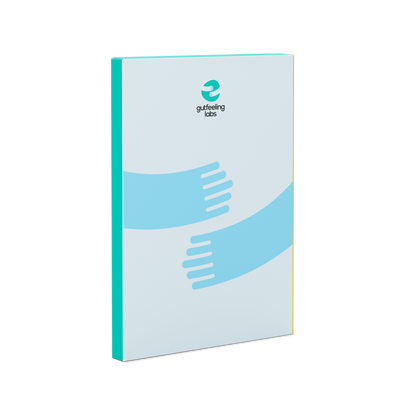It is not possible via intestinal flora analyses, examinations through endoscopes or other tests to identify IBS since it is the function of the intestine itself that is disturbed. It has been shown that people with IBS can actually have an increased sensitivity throughout the gastrointestinal tract (esophagus, stomach, small intestine, large intestine and rectum). Diagnosis of IBS is by indetifying the symptoms and ruling out other diseases that could cause them. There is no medicine that cures IBS today, but the treatment focuses on relieving the symptoms in different ways.
However, studies have shown that 80-85% of people diagnosed with IBS have SIBO - small intestinal bacterial overgrowth, a condition that previously received little attention. The problems may therefore be due to bacteria ending up in the wrong place, in the small intestine instead of the large intestine.
This is what happens in SIBO
Under normal conditions, the small intestine should hardly have any bacterial flora at all, unlike the large intestine. It is usually said that the large intestine should contain 100 million times more bacteria than the small intestine. Intestinal bacteria produce various breakdown products including bacterial toxins (endotoxins) and bacterial DNA. Under normal circumstances this occurs in the large intestine, which is built to handle large amounts of bacteria and bacterial by-products including toxins without these entering the bloodstream.
However, unlike the large intestine, the mucosa of the small intestine is significantly more permeable because it is there that absorption of nutrients (amino acids, fats, minerals, vitamins, etc.) into the bloodstream takes place. When you have an overgrowth of bacteria in the small intestine, dietary fiber is broken down in the small intestine, which it is not equipped for. Gases and decomposition products formed there can cause a sore and swollen stomach. The bacterial toxins that are formed also pass through the permeable mucosa of the small intestine (translocation). This may have a significant impact not only locally in the gut, but on health in general, because a large percentage of the immune system is located in the wall of the small intestine. It is estimated that approx. 70% of the body's immune system is found in the lymphatic tissue of the small intestine, which constitutes a major part of what is called "Gut Associated Lymphoid Tissue" (GALT).
IBS can actually be SIBO
Many of the problems in SIBO are similar to those seen in IBS and are associated with either bacterial gas production and what is often called leaky gut. Production of bacterial toxins and other by-products from the unwelcome bacteria in the small intestine can make the mucosa of the small intestine overly permeable to products from the intestinal compartment which can then enter the bloodstream.
Common symptoms of IBS, which may be due to SIBO:
- bloated stomach
- abdominal pain
- diarrhea/constipation
- sudden hypersensitivity to certain foods
- heartburn
- feeling of exhaustion
- brain fog
- anxiety concern
- depression
- skin problems, such as rosacea
- autoimmune reactions
Deal with your IBS by getting rid of SIBO
To effectively get rid of SIBO, it is important to address the factors that may have contributed to the problem in the first place. One factor is low acid production in the stomach (the ventricle) which can be caused by medications or stress, since negative or chronic stress can cause an inhibition of the important vagus nerve. The vagus nerve has a stimulating effect on the gastric acid production, intestinal motility, signals peace and tranquility to the body and activates the valve (sphincter) between the large intestine and the small intestine. The function of the valve is to prevent bacteria from migrating from the large intestine up into the small intestine and colonizing it - which is what we call SIBO.
Carbohydrates also have an effect because they act as a source of nutrition for the bacteria in the small intestine. Therefore, a low-carb, high-fat diet can help.
Low FODMAP is a diet that has become more talked about in recent years when it comes to how to eat if you have stomach problems. This means eating food with a low fiber content. But sometimes this is not enough to keep the symptoms away and in most cases antimicrobial treatments are needed to reduce the number of bacteria in the small intestine.
There is actually antibiotic treatment for SIBO. Xifaxan (rifaximin) is the most common because the substance remains in the gastrointestinal tract without being absorbed into the bloodstream and thus effectively has the potential to reduce the bacterial flora in the small intestine. However, Xifaxan requires a prescription, and thus needs to be prescribed by a doctor who is familiar with SIBO. There are also herbal preparations with antimicrobial properties. One study even showed that herbal treatment was as effective as rifaximin in reducing SIBO.


